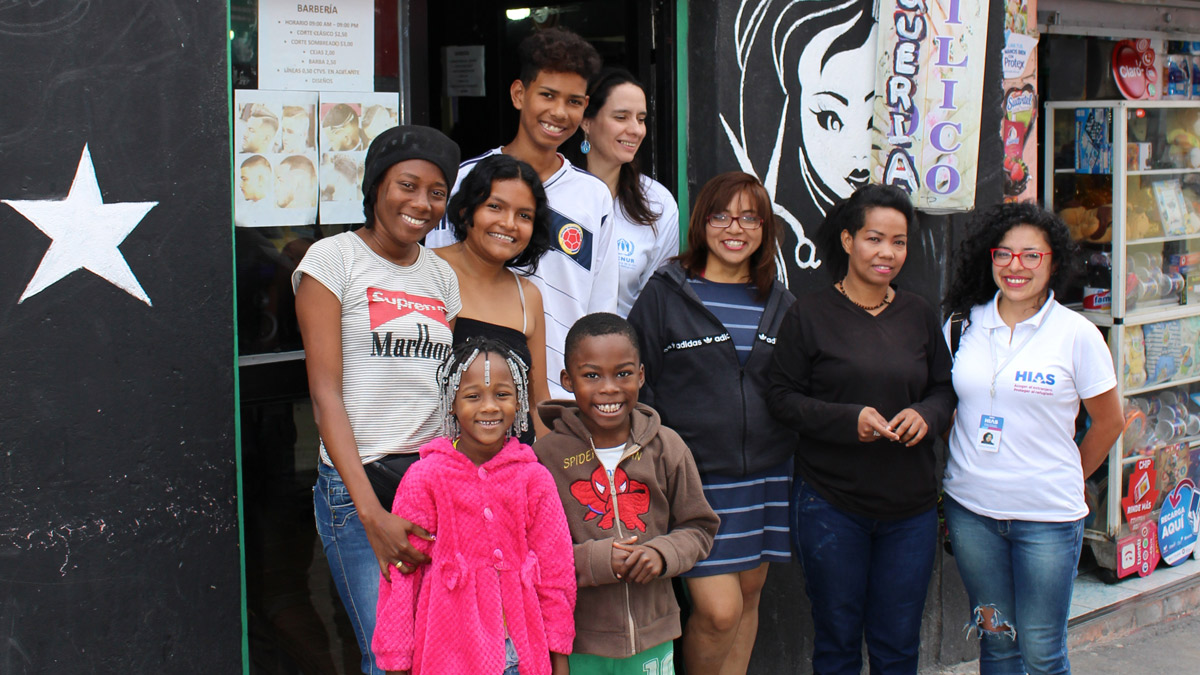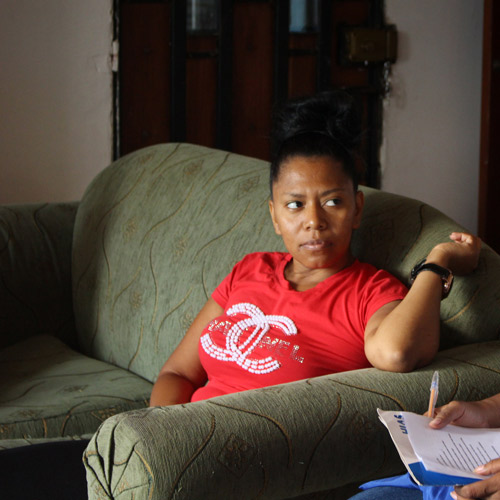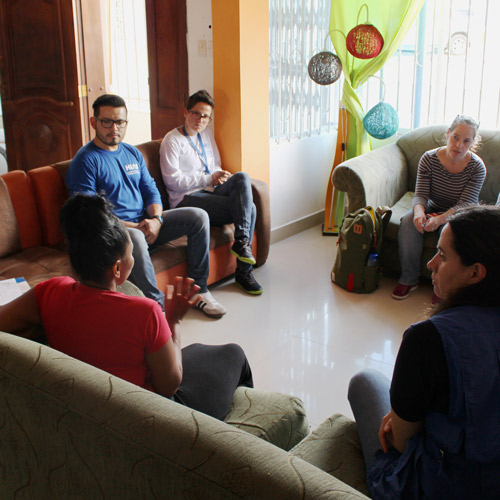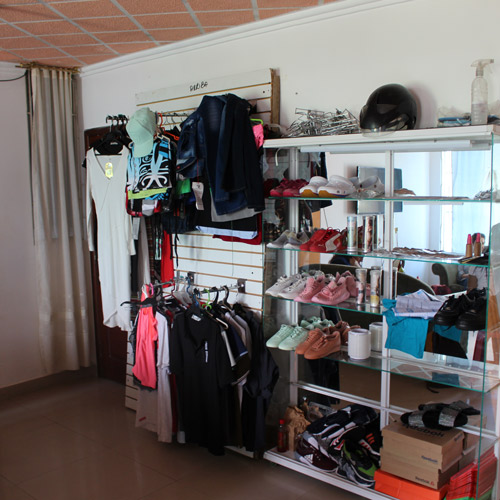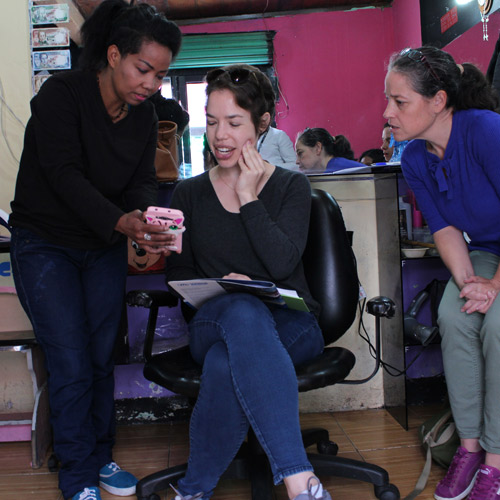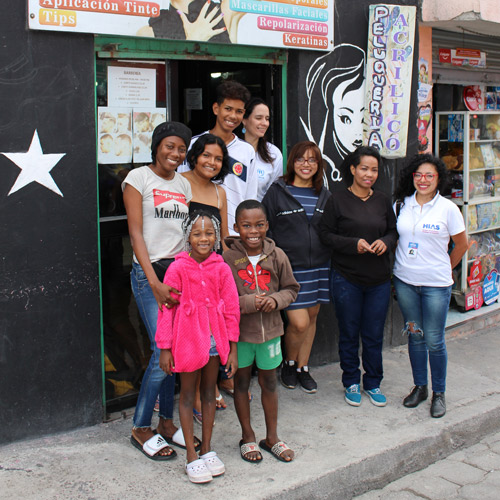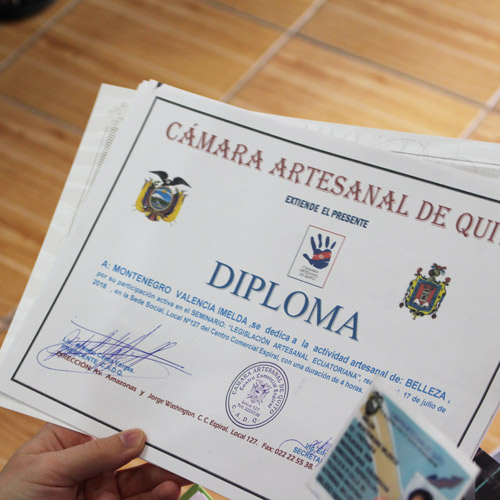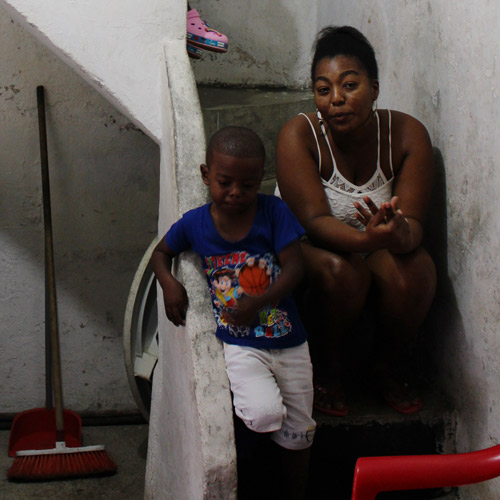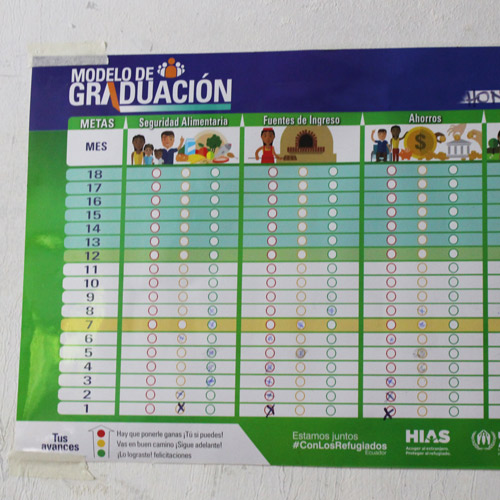Ecuador is home to over 200,000 refugees.
These refugees fall under the mandate of the United Nations High Commissioner for Refugees (UNHCR). Many are asylum seekers who have fled Colombia due to the volatile security situation.
Beginning in 2015, Trickle Up has been assisting UNHCR Ecuador in integrating the Graduation Approach to poverty alleviation into existing projects with the objective of supporting extremely poor participants to find wage-earning jobs or start their own businesses.
Trickle Up’s work with UNHCR Ecuador highlights how we can be a catalyst for transformational change of the institutional policies that lift vulnerable people out of poverty. Following the success of the 2015 pilot program in Santo Domingo, UNHCR and their implementing partner HIAS integrated Graduation into their programs nationally. Additionally, Ecuador’s Ministry of Economic and Social Inclusion is integrating Graduation into its social protection program through a pilot targeting extremely poor Ecuadorians and refugees, in collaboration with UNHCR and HIAS.
In May, Trickle Up led a donor visit to Ecuador to see firsthand how Graduation transforms lives and begins the journey out of poverty. Joined by a representative from the US State Department’s Bureau of Populations, Migration, and Refugees, we visited three participants—Patty, Monica, and Sabrina*—in order to hear their stories.
Patty
Sitting on the couch in Patty’s living room, it was tough for us to imagine her life four years ago. In the spacious apartment, she has two seating areas—one for leisure and one for business. We choose the area meant for business where a display case with clothes, shoes, purses, and other merchandise covers the entire wall.
Patty is a Colombian refugee living in Santo Domingo, a city 96km away from Ecuador’s capital of Quito. She became a participant in the Graduation pilot program in 2015 after relocating from Esmeraldas, a small touristy border town off the Pacific coast, where she did not have the opportunity to work.
“I loved that Graduation gave me the items I needed for my business,” Patty says. From the beginning, she was an entrepreneur. Patty used the seed capital and savings from a job at a beauty salon to buy a display case and to start purchasing merchandise for resale from the Colombian border, where items are cheaper. She also maintains some clients from her time working in the beauty salon and styles their hair in their homes.
“We used to work out of a car and live on the floor. Now, I can save. I have a business that supports me, my husband, my cousin, and my child,” Patty exclaims. She estimates that on average, she makes around $67 per month and saves around $20 per month. “I want to stay here because I am safe and feel integrated.”
Patty’s entrepreneurial aspirations have only grown with her success. She hopes to one day open an ice cream shop.
Monica
Building on the success of the pilot, UNHCR and HIAS have since targeted 2,776 refugee families as part of the national roll-out of Graduation.
One of these more recent participants is Monica.* While in Colombia, Monica was the guarantor on a loan taken out by a friend. When neither her friend nor she could pay it back, she was persecuted by a vigilante group. The persecution and threats to her family only increased after she witnessed her father’s murder.
In June 2015, Monica and her two children arrived safely to Ecuador. In December 2016, she received financial support from HIAS to open a salon in Quito, a few blocks from where she and her two sons lived.
However, in March 2018, her business was robbed. Monica lost everything and had to start over, yet again.
Consequently, Monica now qualified to become a Graduation participant. She slowly built her business back up as she trained in beauty skills at the local municipality. Now, she makes around $350 per month.
“It took a lot of discipline,” Monica explains, as she proudly shows us her hair styling certificate.
As an Afro-Colombian herself, Monica specializes in hair styling for Afro Latinos. Additionally, her salon offers massages, braiding, and manicures thanks to her three employees: a Graduation participant, a former client, and another Colombian refugee.
Business has since been good, and news of her services has spread through word of mouth. She now has clients who are Colombian, Venezuelan, and Ecuadorian.
Thieves targeted her business again in March 2019. This time, more confident as a successful business owner, she organized with her neighbors and members of her community to demand better security measures from the local municipality.
Sabrina
As we walk down the long alley in Santo Domingo, the rich smell of rice cooking draws us into Sabrina’s home. In her kitchen, she has her Graduation map—a tool used to track program milestones—pasted to the wall. Over 18 months in the program, she marks her progress towards food security, savings, income sources, and social integration.
Sabrina, her husband, and her three children left Colombia on July 17, 2018. Because her husband was a customs officer, their family’s life became more at risk as a local guerrilla group gained power. On their first night in Quito, the family slept at a bus station. Quito’s Andean cold was harsh on her family and her children fell sick often. They eventually settled in Santo Domingo where the weather is warmer.
“In Colombia, I did not have opportunities [due to the security situation],” says Sabrina. “Here, I do. And Graduation supports me to achieve.”
Through Graduation, she has learned that diversifying her income sources is key to self-reliance and resilience. Now in her 8th month of the program, Sabrina sells fried fish in the local market. At the same time, she is learning to become a nail artist. As a child, she used to love doing nails, but she never thought it could one day be her profession.
Patty, Monica, and Sabrina are at different points in their journey out of poverty. Through Graduation, all three feel better integrated and more financially secure in Ecuador. Thousands of other refugees participating in Graduation in Ecuador and around the world share similar stories, thanks to Trickle Up’s commitment to reaching the most vulnerable.
*All names changed to protect refugee confidentiality.

